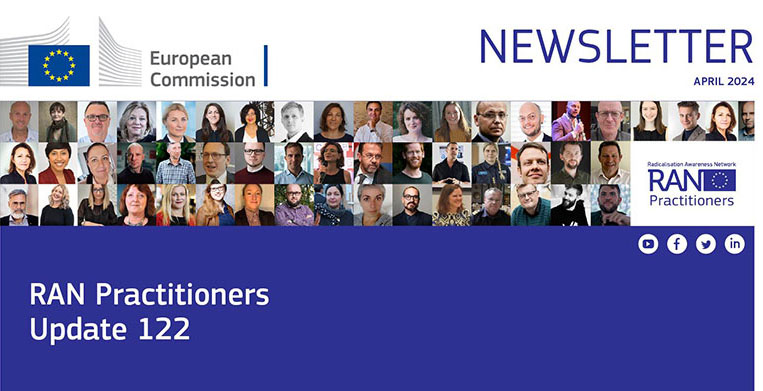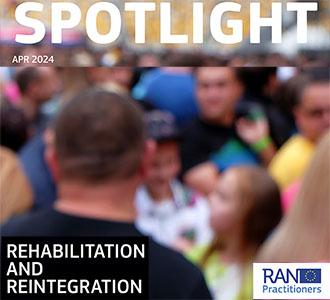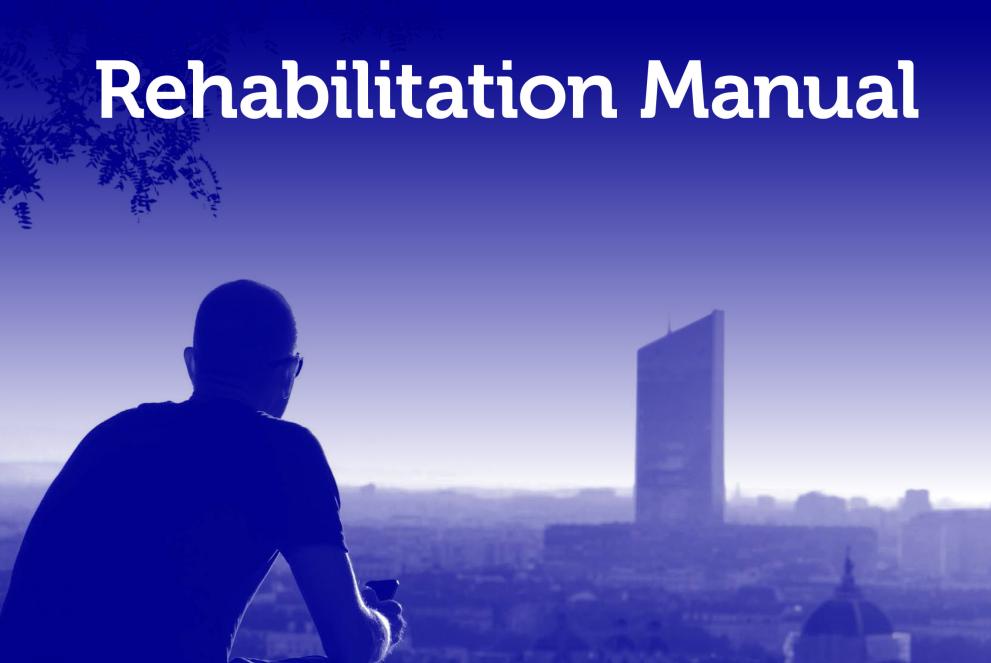
The rehabilitation and reintegration of individuals convicted of terrorism-related offences, others returning from conflict zones, including the families of foreign terrorist fighters (FTFs), and those leaving extremist groups is one of the biggest security challenges facing EU Member States today. In this edition of the RAN Practitioners Update we therefore feature some of the latest RAN Practitioners products which take a look at this important issue. This includes the latest RAN Reporters Spotlight magazine and a recent episode of RAN Reporters. The Update also highlights some upcoming RAN Practitioners events, the most recent RAN Practitioners papers, and a project delivered by a member of the network.
Rehabilitation and reintegration
The latest edition of the RAN Practitioners Spotlight magazine takes a look at some of the challenges related to rehabilitation and reintegration, as well as some of the approaches that have been taken, including multi-agency approaches, mentorship and counselling with families. You can access the magazine on the RAN Practitioners website here.

The RAN Practitioners Rehabilitation Manual offers guidance to first line practitioners regarding the rehabilitation of radicalised and terrorist offenders inside as well as outside of prison.
The Manual describes the seven phases of the rehabilitation process and explores a series of cross-cutting issues.

An episode of RAN Reporters – a series of films which uncover some of the most interesting, innovative and new projects being delivered by members of the RAN Practitioners network – visits the Deaconess Foundation in Finland, to learn about its holistic approach to exit work.
Upcoming events
Stay tuned to the Calendar page on the RAN Practitioners website for updates on meetings which will take place in 2024.
Projects
We continue our series of featuring some of the best P/CVE projects funded by the EU. In this Update we focus on the CEDAR project, which improves the skills of practitioners in the field of radicalisation and extremism in educational and university settings, by supporting them with the necessary competencies for risk identification and prevention.

Publications
Dealing with conspiracy narratives in the close social environment. A practical handbook to help the helpers
This paper provides insights on the underlying functionality of conspiracy narratives and their possible links to violent extremism, and gives advice to practitioners on effective strategies for dealing with such narratives. The paper also provides a summary of a toolkit, published by RAN Practitioners in 2023, on how to deal with conspiracy narratives with your family and friends.
Explorative meeting on dealing with problematic manifestations of the extreme left
This paper provides insights for practitioners on the extreme left and presents testimonies on how related topics feature in the daily work of practitioners in schools and youth work organisations, and the related impact on their professional responsibility to build resilience and safeguard pupils from exploitation by extremist recruiters.
Management of women violent extremist and terrorist offenders in prison
This paper explores the special considerations and tailor-made measures that should be developed and adopted for the management of female violent extremist and terrorist offenders (VETOs) in prison, including include gender-specific requirements. The paper also provides an overview of the different push and pull factors among women towards violent extremism.
Younger generations, older tragedies: how can commemoration involving youth support PVE?
This paper discusses the role of continued commemoration in preventing and countering further and future violence. The paper presents the theoretical aspects as well as concrete examples linked to continued commemoration, and focuses on the engagement of young generations, who have not directly lived through atrocities.
Online guided tour for police officers on right-wing extremism and accelerationism
This paper examines the landscape of right-wing extremism (RWE) and accelerationism, providing an overview of the role of the police in the online sphere – including critical thinking, media literacy, fostering resilience, and online monitoring and interventions – the challenges they encounter, and the methods of monitoring and intervention.
The role of prison leadership to ensure minimal standards for P/CVE work in the prison environment
This paper examines the role of prison management in enabling P/CVE work. In doing so, the paper provides an overview of the work of Centre d’Estudis Jurídics i Formació Especialitzada (CEJFE) in Barcelona, Spain (Center for Legal Studies and Specialized Training), including its training programme for prison staff.
RAN YOUNG exchange with RAN Practitioners
This paper provides an overview of young people’s perspectives on a range of P/CVE topics, including violent right wing extremism (VRWE), polarisation, marginalisation, online extremism, gender, and anti-immigration sentiments. The papers summarises insights shared by members of the RAN YOUNG Platform.
Contact us
RAN Practitioners is implemented by RadarEurope, which is a subsidiary of the RadarGroup:
- Phone: +31 (0)20 468 06 08 (office)
- E-Mail: ran
 radareurope [dot] nl (ran[at]radareurope[dot]nl)
radareurope [dot] nl (ran[at]radareurope[dot]nl)
Would you like more frequent updates on RAN’s activities? Gain access to all public RAN papers as they are published, other RAN news and thought-provoking articles on the radicalisation process by following RAN on:
This is an update on the activities of the Radicalisation Awareness Network Practitioners (RAN Practitioners). You receive this email, along with more than 7,000 other people, because you have participated in a RAN activity or because you have registered your interest in the network. If you wish to unsubscribe, please let us know. Feel free to distribute this RAN Practitioners Update to colleagues and invite them to subscribe.
